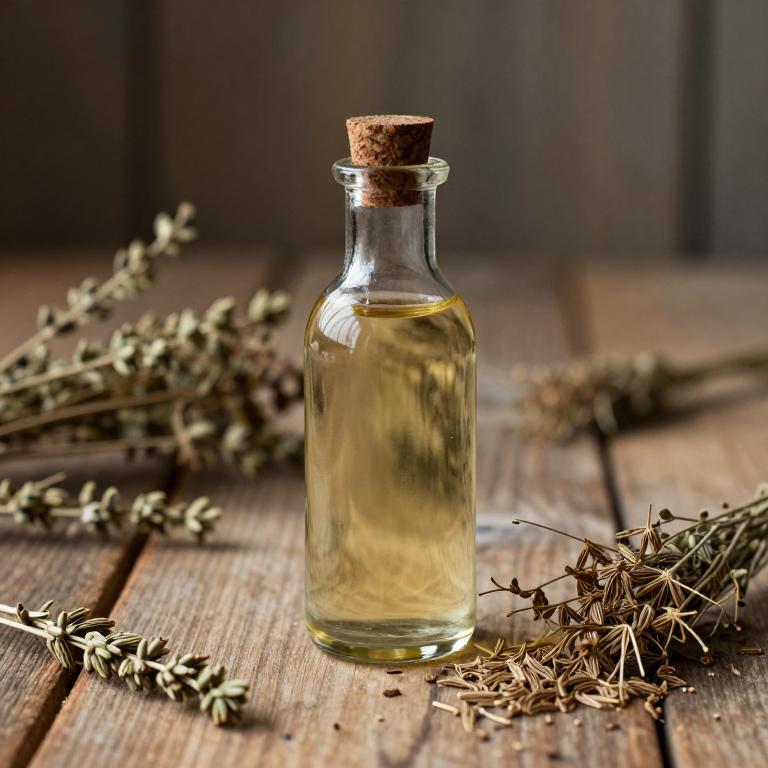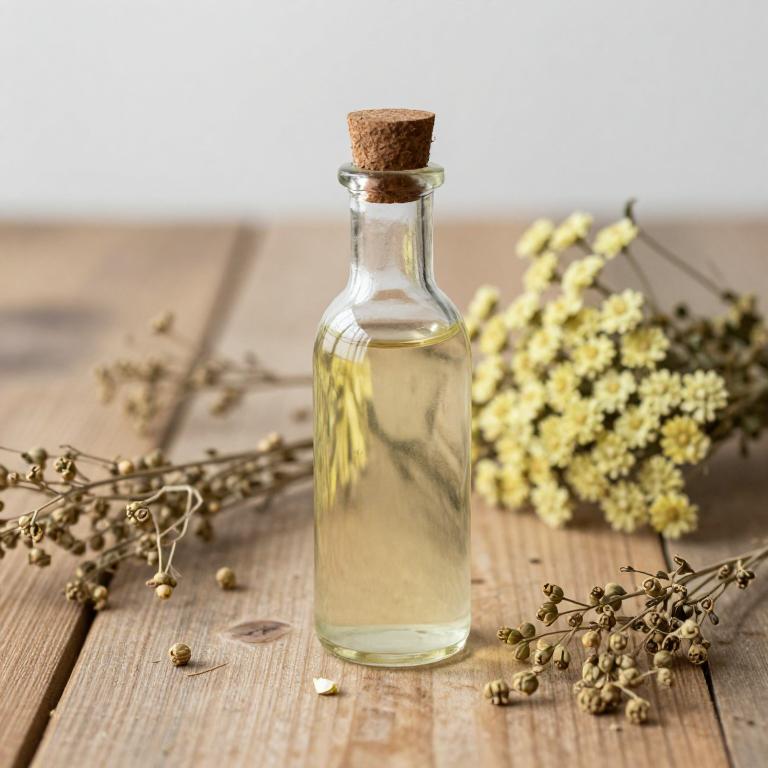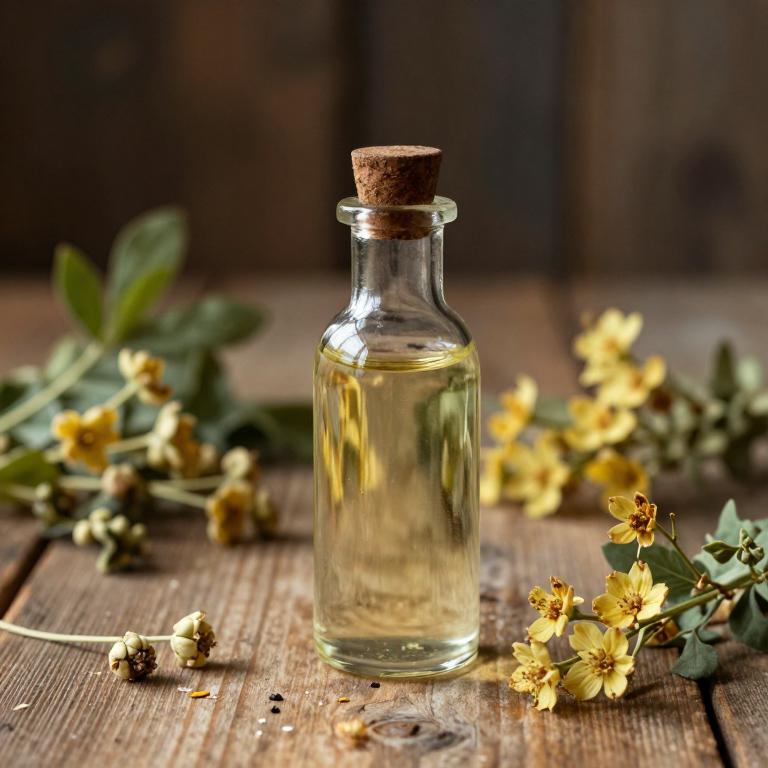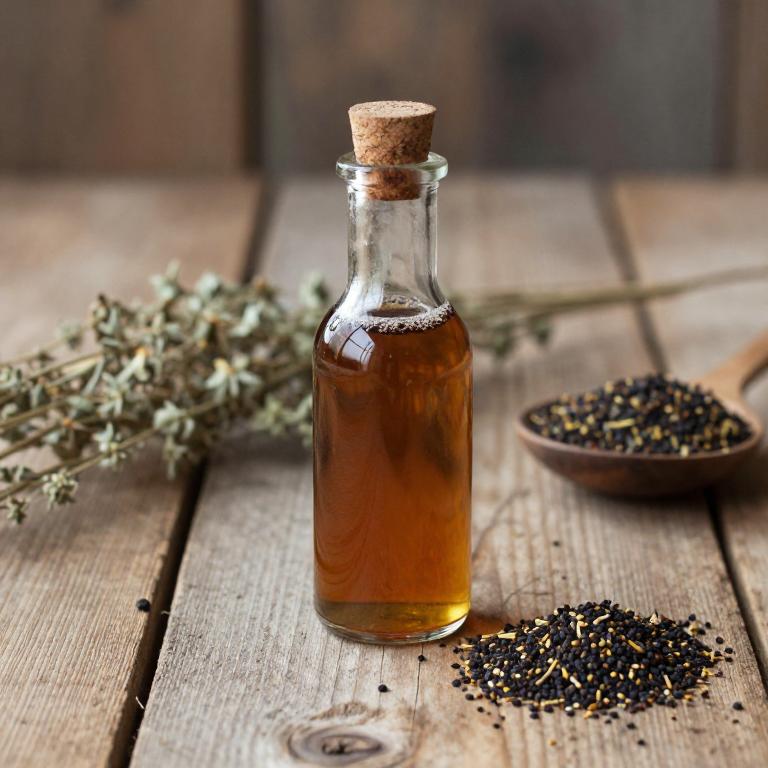10 Best Herbal Syrups For Gas In Stomach

Herbal syrups for gas in the stomach are natural remedies that combine plant-based ingredients to help alleviate digestive discomfort caused by excess gas.
Common herbs used in these syrups include fennel, ginger, peppermint, and dill, all of which are known for their carminative and anti-inflammatory properties. These syrups work by soothing the digestive tract, promoting the release of trapped gas, and reducing bloating and cramping. They are often preferred by individuals seeking alternative or complementary treatments to over-the-counter medications.
When used as directed, herbal syrups can provide gentle and effective relief for mild to moderate gastrointestinal gas issues.
Table of Contents
- 1. Fennel (Foeniculum vulgare)
- 2. Cumin (Cuminum cyminum)
- 3. Ginger (Zingiber officinale)
- 4. Black pepper (Piper nigrum)
- 5. Peppermint (Mentha piperita)
- 6. Caraway (Carum carvi)
- 7. Dill (Anethum graveolens)
- 8. Turmeric (Curcuma longa)
- 9. Cilantro (Coriandrum sativum)
- 10. Black cumin (Nigella sativa)
1. Fennel (Foeniculum vulgare)

Foeniculum vulgare, commonly known as fennel, has been traditionally used in herbal medicine for its digestive benefits, particularly in relieving gas and bloating in the stomach.
Fennel herbal syrups are often prepared by infusing the seeds or dried leaves in a sweetened liquid, making them easy to consume and suitable for both adults and children. These syrups are believed to work by relaxing the smooth muscles of the gastrointestinal tract, thereby reducing discomfort caused by trapped gas. They also contain compounds like anethole, which have mild antispasmodic and carminative properties that aid in digestion.
Due to their soothing effects, fennel syrups are a popular natural remedy for digestive issues such as indigestion and flatulence.
2. Cumin (Cuminum cyminum)

Cuminum cyminum, commonly known as cumin, is a herbal remedy often used in the form of a syrup to alleviate gas and digestive discomfort in the stomach.
This aromatic seed contains compounds that can help stimulate digestion and reduce bloating by promoting the movement of food through the gastrointestinal tract. When prepared as a syrup, cumin is easier to consume and can be more effective in soothing symptoms like indigestion and flatulence. It is typically used in traditional medicine systems such as Ayurveda and is believed to have carminative properties that help expel gas from the stomach.
However, it is advisable to consult a healthcare professional before using cumin syrup, especially for individuals with existing medical conditions or those taking other medications.
3. Ginger (Zingiber officinale)

Zingiber officinale, commonly known as ginger, has long been used in traditional medicine for its digestive benefits, particularly in alleviating gas and bloating in the stomach.
Ginger herbal syrups are made by extracting the active compounds from fresh or dried ginger roots and dissolving them in a sweetened liquid, making them easy to consume and absorb. These syrups work by stimulating digestive enzymes and reducing inflammation in the gastrointestinal tract, which helps to ease discomfort caused by gas. They are often recommended for individuals experiencing mild to moderate digestive issues, including indigestion and nausea.
Due to their natural and soothing properties, ginger syrups are a popular alternative to over-the-counter medications for managing stomach gas.
4. Black pepper (Piper nigrum)

Piper nigrum, commonly known as black pepper, has been traditionally used in herbal remedies for its digestive benefits, including the relief of gas in the stomach.
Black pepper contains compounds like piperine, which enhance the secretion of digestive enzymes and promote the movement of food through the digestive tract. Herbal syrups made from black pepper are often used to alleviate bloating, indigestion, and excess gas due to their warming and carminative properties. These syrups can be prepared by infusing dried black pepper in a base of honey or glycerin, making them easy to consume.
However, it is important to consult a healthcare professional before using black pepper syrups, especially for individuals with sensitive stomachs or existing medical conditions.
5. Peppermint (Mentha piperita)

Mentha piperita, commonly known as peppermint, is widely used in herbal syrups to alleviate symptoms of gas and bloating in the stomach.
The active compounds in peppermint, such as menthol and methyl salicylate, have soothing and antispasmodic properties that help relax the muscles of the gastrointestinal tract. These syrups are often recommended for individuals experiencing digestive discomfort, including indigestion and excess gas. The cooling effect of peppermint can also help reduce inflammation and ease the sensation of fullness.
However, it is important to consult a healthcare provider before using peppermint syrup, especially for those with certain medical conditions or who are taking other medications.
6. Caraway (Carum carvi)

Carum carvi, commonly known as caraway, is a traditional herb often used in herbal syrups to alleviate symptoms of gas and digestive discomfort in the stomach.
The essential oils in caraway, particularly limonene and alpha-pinene, are believed to help relax the muscles of the gastrointestinal tract, reducing bloating and promoting the release of trapped gases. Herbal syrups made from carum carvi are often recommended for their soothing and carminative properties, making them a popular remedy for indigestion and flatulence. These syrups are typically prepared by infusing the seeds in a carrier liquid such as honey or glycerin, enhancing their potency and ease of consumption.
While generally considered safe, individuals with allergies to plants in the Apiaceae family should use caraway-based syrups with caution.
7. Dill (Anethum graveolens)

Anethum graveolens, commonly known as star anise, is not typically used in herbal syrups for gas in the stomach; instead, it is more often associated with the treatment of respiratory conditions.
However, certain herbal syrups containing ingredients like caraway, fennel, or cumin are traditionally used to alleviate stomach gas and bloating. These syrups work by relaxing the muscles of the digestive tract and promoting the release of trapped gases. They are often made with a base of honey or sugar to enhance flavor and aid in absorption.
While Anethum graveolens itself is not a primary ingredient in such syrups, it may be used in combination with other herbs to support digestive health.
8. Turmeric (Curcuma longa)

Curcuma longa, commonly known as turmeric, is a popular herbal remedy used in traditional medicine for its anti-inflammatory and digestive properties.
Turmeric-based syrups are often formulated to help alleviate symptoms of gas and bloating in the stomach by promoting healthy digestion and reducing intestinal discomfort. These syrups typically contain curcumin, the active compound in turmeric, which may help relax the gastrointestinal tract and improve the movement of food through the digestive system. While some studies suggest that curcumin can support digestion, the effectiveness of turmeric syrups for gas may vary depending on individual physiology and the specific formulation.
As with any herbal remedy, it is advisable to consult a healthcare professional before using turmeric syrups, especially for prolonged or severe digestive issues.
9. Cilantro (Coriandrum sativum)

Coriandrum sativum, commonly known as cilantro or coriander, has been traditionally used in herbal medicine for its digestive benefits, including relief from gas and bloating in the stomach.
The essential oils found in coriander seeds, such as linalool and terpinene, are believed to have carminative properties that help expel gas and ease gastrointestinal discomfort. When prepared as a herbal syrup, coriander can be easily absorbed into the bloodstream, providing a more sustained effect compared to other forms. This syrup is often combined with other digestive herbs like ginger or fennel to enhance its effectiveness.
Due to its mild and generally safe nature, coriandrum sativum syrup is considered a natural alternative for those seeking relief from occasional stomach gas without the side effects of pharmaceutical remedies.
10. Black cumin (Nigella sativa)

Nigella sativa, commonly known as black cumin, has been traditionally used for its digestive benefits, including the relief of gas in the stomach.
Herbal syrups made from Nigella sativa seeds are often prepared by grinding the seeds and mixing them with honey or water, creating a soothing and easily digestible form. These syrups are believed to aid in reducing bloating and flatulence by promoting healthy digestion and reducing gas formation. The active compounds in Nigella sativa, such as thymoquinone, may help soothe the digestive tract and improve gastrointestinal motility.
While generally considered safe, it is advisable to consult a healthcare professional before using these syrups, especially for individuals with existing medical conditions or those taking medications.